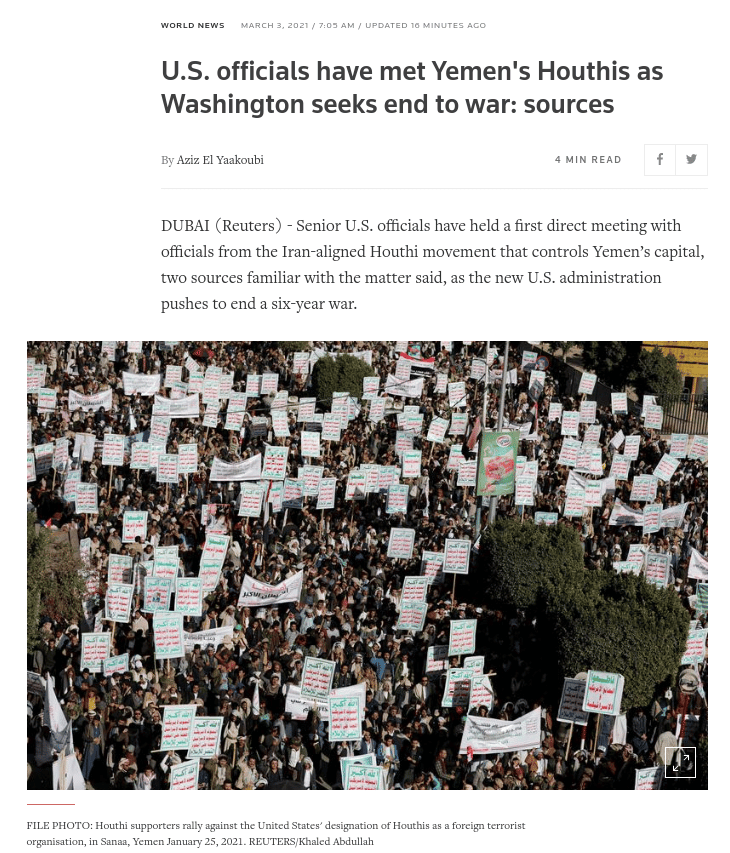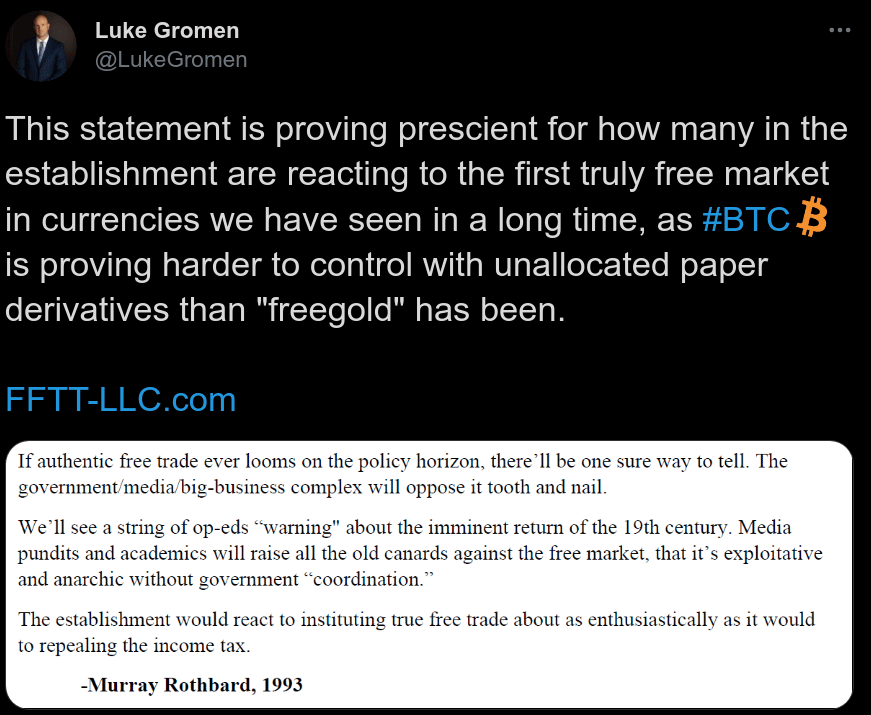I’m speaking at this event in Gause, Texas, near College Station, next Wednesday.
Blog
Medea Benjamin: How Not To Celebrate Women’s History Month
U.S. Officials Have Met Yemen’s Houthis As Washington Seeks End To War
Cops Kill Man
Ready for this one?
Police Claimed Man Died in Crash But Video Shows They Beat Him to Death
“Ronald immediately surrendered at his first contact with law enforcement. When the vehicle stopped, he put his hands up and said, ‘I’m sorry,’” Merritt said. “His dying words were, ‘I’m sorry.’”
Antiwar Pivot: No Peace in Afrin
From March to June 2017 I was the Team Turkey Commander, having replaced what, until that point, had been a Special Forces Company mission with a company headquarters, three Special Forces teams, and some addition support personal. Once the company moved to Syria, it became the job of three other Green Berets from my team, a translator, a cook, and myself to take on the mission. I would be reporting directly to the 5th Special Forces Group and CJSOTF-Syria Commander, skipping my boss and his boss.
We were partnered with several Free Syrian Army units, one of which was Liwa al-Hamza, or the Hamza Division. When I came across that name in the first line of an article by Lindsey Snell from The Gray Zone, I had to keep reading. The article was eerily depressing because I found myself feeling terrible for these mercenaries, simply because we had worked together, even though they were led by Syrian warlords. It’s a weird dilemma I often find myself in. As a fairly recent convert to the antiwar movement, having spent nearly a decade working for the Empire, I am often torn between past accomplishments and the realization that what I was doing was terrible, morally and strategically.
As I continued to read the article titled “No one cares if we die”, I realized that I should absolutely care if they die, just as I care when innocent women and children are being killed. These people, not unlike my former self, are being used like pawns to maintain those in power. This is my effort to shed a sliver of light on the situation and allow people to pivot towards the antiwar movement, without losing who they are in the process.
One of the worst things to read in the article was how, just 9 months after I left, Turkey captured and occupied Afrin. I already knew this, but having it reframed with my now antiwar perspective, it stung as if I was learning it for the first time. Especially because one of our partner forces, the Mu’tasim Brigade, had frequently pushed for a peace deal centered around Afrin.
Afrin was in the center of a section of northern Syria that had recently been cleared of ISIS by the FSA with US Special Forces. To the east and west was Kurdish territory. The Turks wanted to keep them separated as much as possible. These partner forces were Arab, but the area had previously been occupied by the Kurds. The Mu’tasim Brigade commander wanted to discuss returning the displaced people to their homes in Afrin. He certainly wanted to leverage a peace deal to build up his own power within the FSA coalition and there is no guarantee any of these “peace talks” would have amounted to anything. But being willing to have the discussion is the first step. Having learned our lesson on exit strategies from Iraq War II, a sustained peace and way out was always on my mind within our Area of Operation.
I brought up Mu’tasim’s intent to have peace talks during a CJSOTF-Syria Commander’s Update Brief. He brushed it off and quickly moved on to the next briefer. It didn’t seem like a big deal at the time. He had a lot on his plate and it would always be something we could come back to if needed. Immediately after the briefing, the CJSOTF Operations Officer calls me to chew me out for having brought that up in a meeting when the Turks were present. The Turks were apparently flipping out because someone might be discussing peace on their southern border! He told me that if I was ever unsure of something I should ask him first. Well, if I had thought that was necessary, I would have.
I didn’t know it at the time, but this was one of my many pivots that led me toward the antiwar movement. Seeing how just the mere idea of peace made people in the military recoil was disturbing. This certainly was not going to be the deal that saved the region, but to never even discuss it meant that nothing like that would ever be discussed. Had we not learned our lesson from Iraq War II? Maybe forever war really was the plan, if not through any intentional political strategy, but from the bumbling around of military leaders constantly looking for their next mission, purpose, and promotion.
Cops Kill Man
Well he ran out of gas so they electro-shock tortured him to death.
Because it was government employees who did it, it is therefore “reasonable.” You have no rights they are bound to respect.
The Prescient Murray Rothbard
More Interviews of Me
The Roots of the War on Terror – Tom Woods
The Iraq Fiasco Revisited – Tom Woods
Backgrounder on Syria, and Why the US Should Stay Out – Tom Woods
War All the Time: The Perpetual War on Terror – Tom Woods
The Truth About the Iran Nuclear Program – Tom Woods
Further Thoughts on the Culture and Social Media Wars – Pete Quinones












